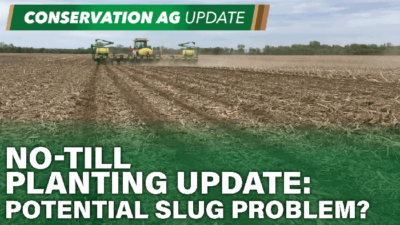Advertise Follow Us
Articles Tagged with ''no-till adoption''
[Podcast] How Much No-Till is Worth, According to Rod Rejesus
For this episode of the No-Till Farmer podcast, brought to you by SOURCE by Sound Agriculture, we're joined by Rod Rejesus, who studies economics, land values and crop insurance for North Carolina State University. He and collaborators from other academic institutions authored and published a paper earlier this year showing increased land values corresponding with a 1% increase in no-till adoption at the county level.
Read More
Teaching the World to Save the Soil
Five educators discuss the past, present and future of sharing no-till knowledge with farmers.
Read More
From the Desk of John Dobberstein
How Far Do We Go?
If an agricultural company bowed to pressure and demanded you produce “pollution-free food,” how would you handle it?
Read More
No-Till Innovator Awards
Trailblazers Recognized for No-Till Adoption, Growth
The 20th Class of No-Till Innovators is being honored for their research, teaching and front-line, field-management practices that encouraged no-till adoption and advanced soil health principles.
Read More









